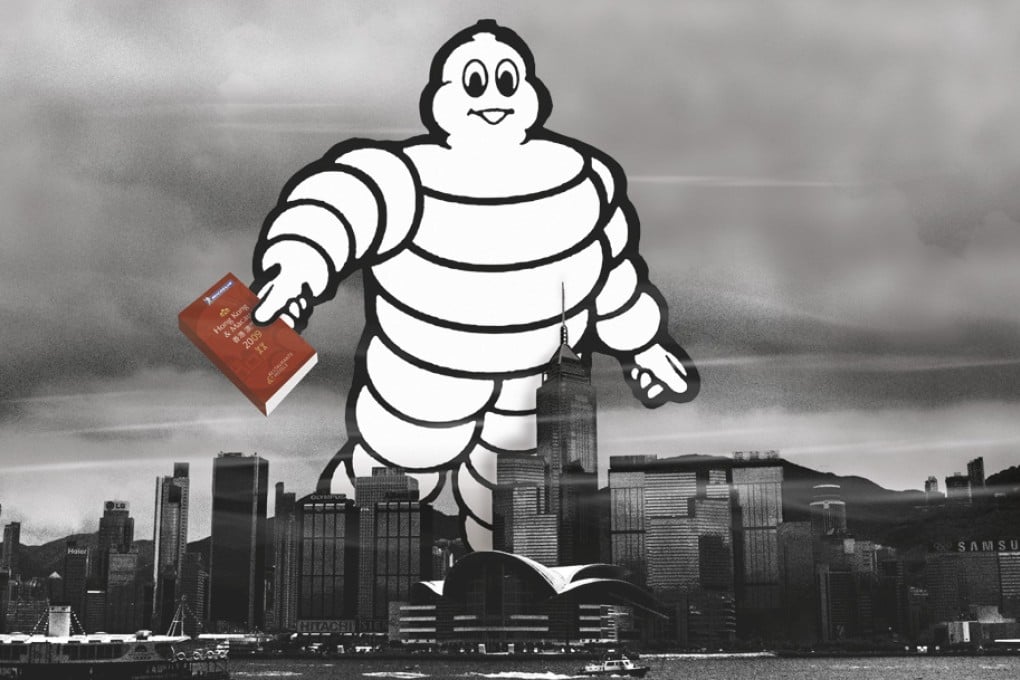Michelin Men
The Michelin Guide is coming to Hong Kong. How will the prestigious three-star system affect our local culinary scene?

Though now a byword for haute cuisine, The Michelin Guide has humble roots. Started in 1900, it began as a freely distributed publication that helped drivers find hotels and restaurants that would alleviate the tedium of cross-country traveling. It has since become the first word in haute cuisine. In recent times, the guide itself has come across some bumps on the road. Gruesome tales of chefs committing suicide after losing stars and a former inspector’s tell-all tarnished the brand greatly. The final nail in the coffin was when Alain Senderens, one of the founders of nouvelle cuisine, announced to the world that he wanted to decline the three stars bestowed upon his restaurant by the guide.
And then Michelin hit Tokyo. The Japanese, notoriously proud of their culinary heritage, bristled at the thought of westerners deciding what was good food for them. The guide was accused of Eurocentrism, which was not helped by the team of inspectors consisting of more Frenchmen than Japanese. Although the city was awarded 191 stars, a whopping 94 more than Paris, many were still unsatisfied. With Michelin’s Hong Kong guide coming out this December, what will the reaction be here?
The first bone of contention is that like the Japanese guide, the inspectors are largely European. According to Jean-Luc Naret, director of the Michelin Guides, only two members of the 12-person team are Chinese. Are these inspectors’ palates suitably fine-tuned to judge the quality of Asian cuisine? Another issue is that Michelin starred chefs have opened famous restaurants here. How can a small restaurant tucked down an alley in the New Territories even think of competing? Naret assuages these fears by explaining that Ducasse and Robuchon are culinary superstars now because the Michelin guide bestowed upon them when they were still unknowns. Even in Japan, it was grudgingly acknowledged that the young chefs whose restaurants were awarded stars were given a once-in-a-lifetime chance to break free of the hierarchy of the Japanese kitchen.
Fans of the guide see it as a tourism tool that will entice visitors and bring in revenue to the city’s dining scene. Bryan Chiu, F&B Director of the InterContinental—home to two likely contenders, Spoon and Nobu—is understandably upbeat about the guide. “The launch of the Michelin Guide will enhance and reinforce Hong Kong’s international status and image as a dining capital,” he says, and as a result, “we can expect more great chefs to consider Hong Kong as a city to land their next restaurant.”
But one can’t help but wonder whether the guide still commands the same reverence in a world where every blogger is a critic and food sites like openrice.com are becoming more powerful. Some believe that the supposed boost the Michelin guide brings to a city’s culinary scene is an illusion. Leo Lewis, the Asia business correspondent for the Times Online, believes that any city on the Michelin’s list must already be thriving economically in order to have nurtured such a booming restaurant industry. The guide comes at the tail end of an economic boom; it’s not the harbinger of a new one.
Small restaurateurs are worried that they will be negatively impacted by the guide’s publication. Restaurateur Frank Sun puts it this way: “People in Hong Kong have always had a certain freedom when it comes to dining. It’s not unusual for people eat at hole-in-the-wall restaurants and at Robuchon in the same week. But I’m worried that when the guide is published, it’ll enforce the perception that only a certain level of restaurant can provide good food.”
